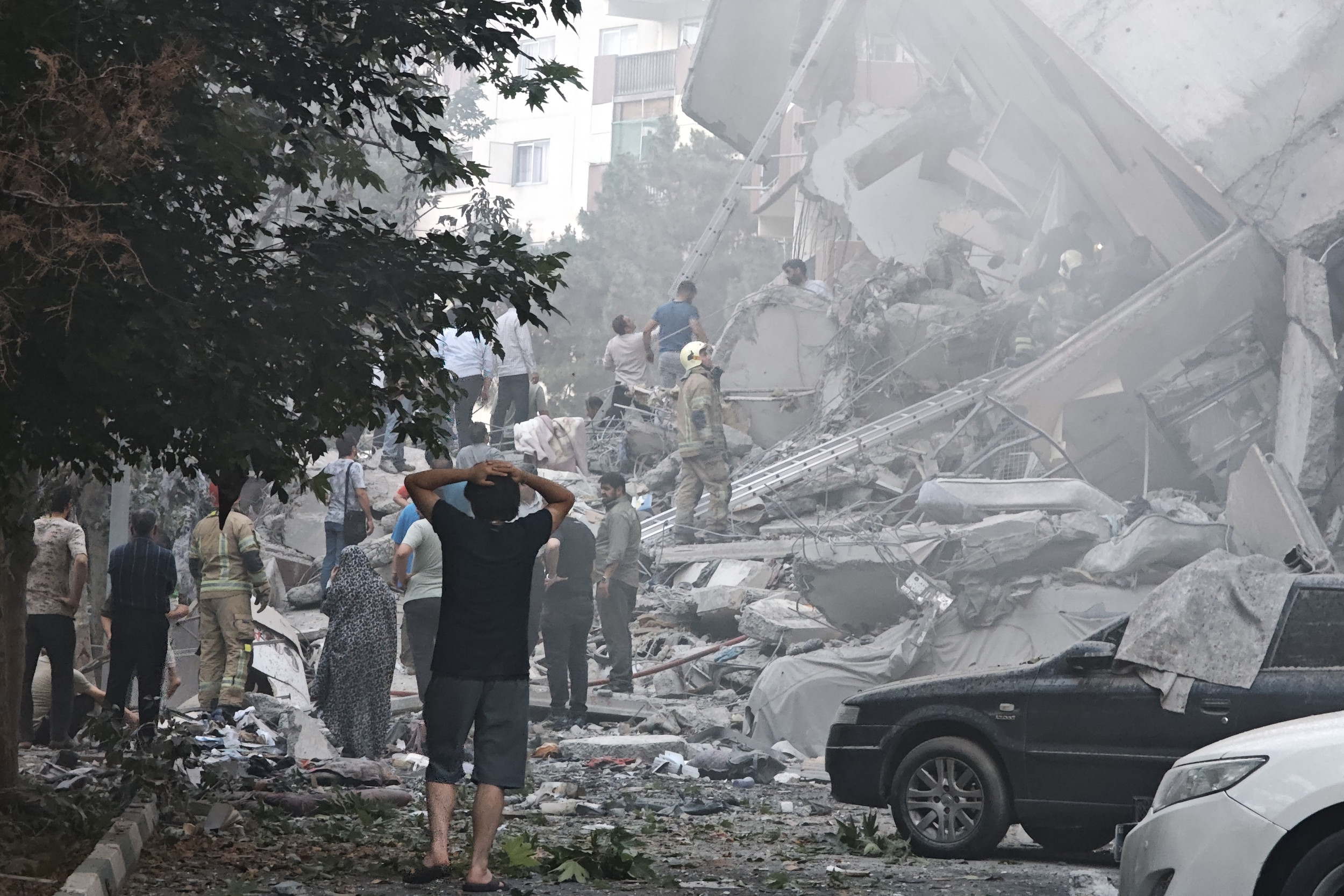
Iran sent drones towards Israel in a swift initial response to the multiple strikes that targeted its armed forces and nuclear program, but much bigger retaliation can be expected.
Israel put its forces on alert and put in place “a special state of emergency” with a warning that Israeli civilians should be prepared for missile and drone strikes.
Iran’s Supreme Leader Ayatollah Ali Khamenei vowed Israel would face a “severe punishment.” Iran’s response could not only target Israel but affect a much wider swathe of the Middle East and have a major impact on the global economy.
These are some of the options that Iran already has prepared for striking back.
1. Drone and Missile Strikes
These have already begun. Iran possesses thousands of ballistic missiles and an expanding fleet of drones, both of which play a key role in its strategy for retaliation. In April 2024, Iran carried out a direct attack on Israeli territory for the first time, launching more than 300 missiles and drones in response to Israeli strikes on Iranian positions. This action demonstrated Tehran’s capacity for rapid and accurate retaliation.
Although previous Israeli airstrikes have targeted Iran’s missile infrastructure in an effort to limit its advancing military strength, Iran’s defense minister has asserted that the country has restored and enhanced its defenses. As a result, Iran continues to maintain a powerful arsenal, including numerous missiles with the range to strike U.S. bases throughout the region, such as those in Iraq and the Gulf—escalating the risks associated with any potential confrontation. The United States has distanced itself from the Israeli attacks, however, potentially raising questions over whether it would be a target.
Photo by Majid Saeedi/Getty Images
2. Proxy Forces
Iran’s network of proxy groups—which includes the Houthis in Yemen, Iraqi militias, Palestinian factions, and Hezbollah in Lebanon—is capable of carrying out rocket attacks, sabotage, and covert operations. Yet, Hezbollah’s operational strength has been reduced due to recent Israeli military actions and severe economic sanctions, which have constrained its current effectiveness.
Nevertheless, U.S. and Israeli intelligence continue to view proxy retaliation as the most probable and immediate reaction to any Israeli attack on Iran. In a recent Newsweek interview, a senior Houthi representative affirmed their willingness to back Iran in a conflict with Israel, underscoring Tehran’s capacity to orchestrate a rapid, multi-front retaliation.
3. Choking Global Oil
Iran has consistently issued warnings about its intention to disrupt shipping in the Strait of Hormuz, a vital passage through which close to 20 percent of the world’s oil is transported each day. Earlier this year, commanders from Iran’s Islamic Revolutionary Guard Corps (IRGC) stated they are ready to use naval mines, missiles, fast-attack vessels, and submarines to threaten or temporarily block the strait if sanctions intensify or attacks occur. This ability to interfere with maritime traffic has the potential to significantly drive up oil prices and exert global economic pressure without initiating a full-scale conflict, demonstrating Tehran’s leverage over this crucial energy corridor. World oil prices jumped more than 10 percent shortly after the Israeli strikes on Iran.
4. Cyber Warfare
Iran’s cyber operations, including those carried out by the IRGC-affiliated Mabna Institute, have targeted American and Israeli financial institutions, utilities, and military networks—inflicting both economic harm and symbolic blows while allowing for plausible deniability. Recently, Iran claimed to have acquired thousands of sensitive Israeli documents, reportedly containing information about Israel’s nuclear program, which Iranian officials suggest could have implications for several countries. In addition, Iranian hackers have escalated their attacks on Israel’s vital infrastructure, including water and energy systems, indicating an increased reliance on cyber warfare as a central form of retaliation.
5. Nuclear Escalation
Although Iran says that it is not pursuing nuclear weapons, its officials have cautioned that ongoing external pressure or threats to the country’s survival could prompt a move toward weaponization. Iran had already said it would accelerate enrichment of uranium after a vote of censure this week at the U.N. nuclear watchdog, the International Atomic Energy Agency.
Senior advisers to the Supreme Leader have indicated that if sanctions are reinstated or Iran perceives an existential threat, it might discard voluntary limits and rapidly increase uranium enrichment to weapons-grade levels—significantly heightening the nuclear risks in any potential conflict.
